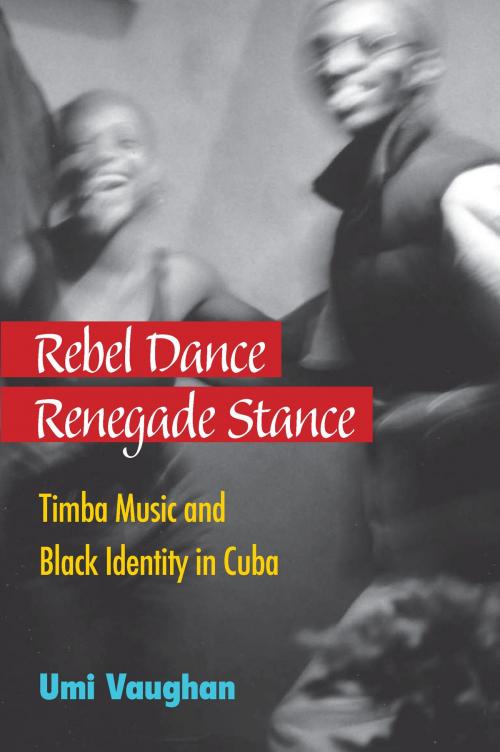Rebel Dance, Renegade Stance
Timba Music and Black Identity in Cuba
Nonfiction, Entertainment, Music, Theory & Criticism, Ethnomusicology, Dance| Author: | Umi Vaughan | ISBN: | 9780472028696 |
| Publisher: | University of Michigan Press | Publication: | October 17, 2012 |
| Imprint: | University of Michigan Press | Language: | English |
| Author: | Umi Vaughan |
| ISBN: | 9780472028696 |
| Publisher: | University of Michigan Press |
| Publication: | October 17, 2012 |
| Imprint: | University of Michigan Press |
| Language: | English |
Rebel Dance, Renegade Stance shows how community music-makers and dancers take in all that is around them socially and globally, and publicly and bodily unfold their memories, sentiments, and raw responses within open spaces designated or commandeered for local popular dance. As an African American anthropologist, musician, dancer, and photographer who lived in Cuba, Vaughan reveals a unique perspective on contemporary Cuban society during the 1990s, the peak decade of timba, and beyond, as the Cuban leadership transferred from Fidel Castro to his brother. Simultaneously, the book reveals popular dance music in the context of a young and astutely educated Cuban generation of fierce and creative performers.
By looking at the experiences of black Cubans and exploring the notion of “Afro Cuba,” Rebel Dance, Renegade Stance explains timba's evolution and achieved significance in the larger context of Cuban culture. Vaughan discusses a maroon aesthetic extended beyond the colonial era to the context of contemporary society; describes the dance spaces of Cuba; and examines the performance of identity and desire through the character of the “especulador.”
Rebel Dance, Renegade Stance shows how community music-makers and dancers take in all that is around them socially and globally, and publicly and bodily unfold their memories, sentiments, and raw responses within open spaces designated or commandeered for local popular dance. As an African American anthropologist, musician, dancer, and photographer who lived in Cuba, Vaughan reveals a unique perspective on contemporary Cuban society during the 1990s, the peak decade of timba, and beyond, as the Cuban leadership transferred from Fidel Castro to his brother. Simultaneously, the book reveals popular dance music in the context of a young and astutely educated Cuban generation of fierce and creative performers.
By looking at the experiences of black Cubans and exploring the notion of “Afro Cuba,” Rebel Dance, Renegade Stance explains timba's evolution and achieved significance in the larger context of Cuban culture. Vaughan discusses a maroon aesthetic extended beyond the colonial era to the context of contemporary society; describes the dance spaces of Cuba; and examines the performance of identity and desire through the character of the “especulador.”















